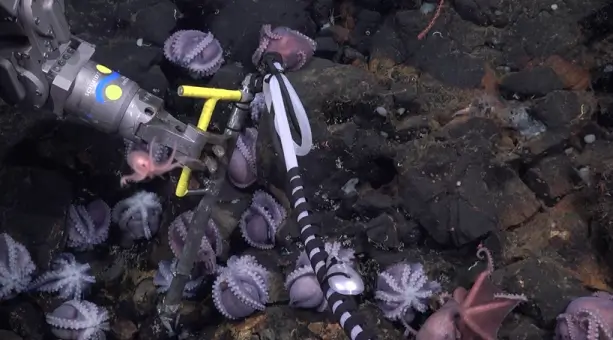
Scientists aboard Schmidt Ocean Institute’s vessel R/V Falkor (too) have discovered at least four new deep-sea octopus species in a 100-square-mile-sized area off Costa Rica.
The international science team discovered the new species during two 2023 expeditions examining seamounts of the Pacific coast of Costa Rica, the institute said.
The team found two octopus nurseries affiliated with hydrothermal springs during their first expedition in June.
Six months later, scientists returned to the nurseries and confirmed they appeared to be active year-round.
They also observed several other new octopus species away from the hydrothermal springs, according to the institute.
Both expeditions were led by doctors Beth Orcutt of the Bigelow Laboratory for Ocean Sciences and Jorge Cortés of the University of Costa Rica.
The four species were identified and are currently being described by Dr Janet Voight, associate curator of invertebrate zoology from the Field Museum of Natural History, and Fiorella Vasquez from the Zoological Museum at the University of Costa Rica.
One of the new octopuses is a new species of Muusoctopus and will be named Dorado Octopus after the initial location of discovery, a small outcrop of rock unofficially called El Dorado Hill.
Of the four new Costa Rica species, only the Dorado octopus was observed brooding their eggs at hydrothermal springs.
The discovery adds to evidence that the Muusoctopus genus has evolved to brood their eggs in warm springs on the seafloor.
“The impact of the R/V Falkor (too) expeditions on understanding the deep Pacific waters of Costa Rica will last into the future and hopefully create awareness that evolves into policies to protect the deep sea of the country,” Cortés said.
This material was published as part of a press release posted on January 16 by Schmidt Ocean Institute, a non-profit foundation that operates its vessel Research Vessel (R/V) named Falkor (too).